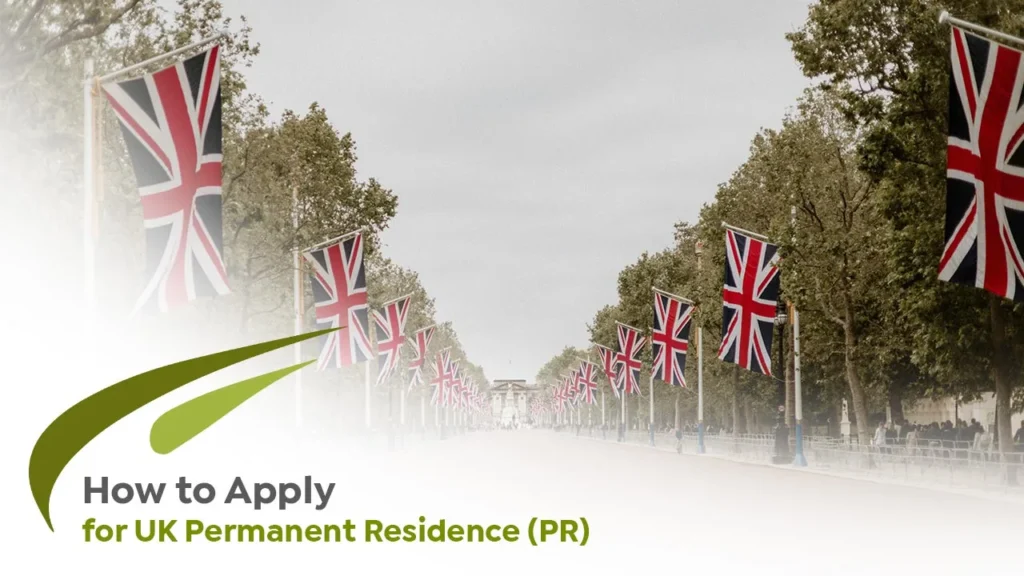In recent years, the United Kingdom has attracted individuals from all over the globe, drawn by its vibrant culture, excellent education, and promising career opportunities.
For many, the aspiration to settle permanently in the UK becomes a reality through obtaining UK Permanent Residence (PR).
If you’ve set your sights on making the UK your permanent home, obtaining UK Permanent Residence (PR), is the key.
This guide will walk you through everything you need about UK PR requirements and the application process.
Understanding UK PR
UK Permanent Residence, often referred to as ‘indefinite leave to remain’ (ILR), grants you the right to live and work in the UK indefinitely.
It allows you to travel freely in and out of the country without visa restrictions.
Unlike a visa, which has an expiration date, UK permanent residence offers long-term stability and paves the way for eventual British citizenship (after meeting the eligibility criteria).
Who can apply for UK Permanent Residence?
There are several routes to obtaining UK PR, each with its specific requirements.
Here’s a breakdown of the most common eligibility pathways:
- Work Visa holders:
This is a popular route for skilled professionals.
Suppose you hold a qualifying work visa, such as the Skilled Worker visa.
In that case, you can typically apply for UK Permanent residence after residing and working legally in the UK for 5 years continuously (the exact duration may vary depending on the visa type).
There are also specific visa categories like Innovator or Global Talent that have shorter qualifying periods.
- Family members:
If you’re a spouse, civil partner, parent (or child) of a British citizen, or someone with settled status in the UK, you may be eligible for UK PR under family reunification rules.
The specific requirements and waiting times will depend on your relationship and visa category.
- Ancestry visa holders:
Commonwealth citizens who have a grandparent born in the UK may be eligible for PR through the UK Ancestry visa route.
After residing legally in the UK for 5 years, they can apply for ILR.
- Private life route:
This route caters to individuals who have established a strong private life in the UK. This could be due to long-term residency, close family ties, or significant contributions to British society.
However, meeting the requirements for this route can be complex, and it’s recommended to seek professional immigration advice.
UK PR Requirements: A Checklist
Before starting your UK Permanent Residence application journey, it’s crucial to ensure you meet the specific requirements for your chosen route.
Here’s a general checklist to get you started (be sure to consult the UK government website for the latest details on your specific visa category):
- Residency: You must have resided in the UK legally for a defined period, typically 5-10 years depending on your visa route.
- Financial requirements: You’ll need to demonstrate sufficient income to support yourself and any dependents without relying on public funds.
Minimum income thresholds vary depending on your circumstances.
- English language proficiency: You’ll need to pass a recognised English language test, demonstrating a level of English sufficient for everyday life in the UK.
- Life in the UK test: This mandatory test assesses your knowledge of British life, values, and customs.
- Tuberculosis (TB) test: You may need to undergo a TB test to ensure you don’t pose a health risk.
- Criminal record checks: You’ll need to provide evidence of good character through police certificates from countries you’ve resided in for a specific period.
- Valid passport: Your passport should be valid for a minimum period beyond your intended stay in the UK.
Supporting documents: Depending on your application route, you may need to provide additional documentation like marriage certificates, birth certificates, and proof of employment.
The UK Permanent Residence Application Process: Step-by-Step
Once you’ve confirmed your eligibility and gathered the necessary documents, you can proceed with the formal application process:
1- Choose the right application form:
The UK government website provides various online application forms specific to each visa category.
Ensure you select the correct one for your situation.
2- Complete the online application:
The online form will require details about your personal information, immigration history, employment, and supporting family members.
3- Pay the application fee:
Application fees vary depending on your visa category and the number of included dependents.
You can pay online using a credit or debit card.
4- Book a biometric appointment:
After submitting your application electronically, you’ll need to schedule an appointment at a UK Visa and Citizenship
Application Service (UKVCAS) service center to provide your fingerprints and digital photographs.
5- Submit supporting documents:
You’ll upload scanned copies of all required supporting documents through the online portal.
6- Await a decision:
Processing times for UK Permanent residence applications can vary depending on complexity and current workload.
The Home Office will keep you updated on the progress of your application.
Additional Tips for a Successful UK PR Application
- Start planning early: Research the requirements and application process well in advance.
Gather supporting documents early to avoid delays.
- Seek professional advice: Immigration laws can be complex.
Consider consulting an immigration lawyer for guidance, especially for complex cases.
- Meet the financial requirements comfortably: Exceeding the minimum income threshold demonstrates financial stability and reduces the risk of relying on public funds.
- Prepare thoroughly for the Life in the UK test: Familiarise yourself with the test format and study materials available online or through official channels.
- Maintain a good immigration history: Avoid visa overstays or breaches of immigration regulations.
- Keep accurate records: Maintain organised records of your income, employment, and residency to support your application effectively.
- Be truthful and transparent: Provide accurate information throughout the application process.
Any misrepresentation could lead to rejection.
- Respond promptly to requests: If the Home Office requests additional information or clarification, respond promptly to avoid delays.
Consider private healthcare: While not mandatory, having private health insurance can strengthen your application by demonstrating your ability to support yourself financially without relying on the NHS.
Beyond the Application: Maintaining UK Permanent Residence
Once your UK Permanent residence application is successful, it’s important to understand the ongoing requirements for maintaining your status:
- Reside in the UK: You must not spend more than 5 continuous years outside the UK without applying for a re-entry permit.
Exceptions may exist for certain circumstances, so consult the UK government website for details.
- Renew your biometric residence card (BRC): Your BRC is a valid travel document and proof of your immigration status.
It’s typically valid for 10 years and needs to be renewed.
Conclusion
Obtaining UK Permanent Residence is a significant milestone for individuals seeking to make the UK their permanent home.
By understanding the requirements and following the application process diligently, applicants can enhance their chances of a successful outcome.
Remember, patience and attention to detail are key throughout the application journey. Consulting immigration specialists, such as FreshStart UK, can provide invaluable assistance and guidance, ensuring that you navigate the process smoothly and confidently. With careful planning and preparation, you can start the path to securing your place in the vibrant tapestry of British life








